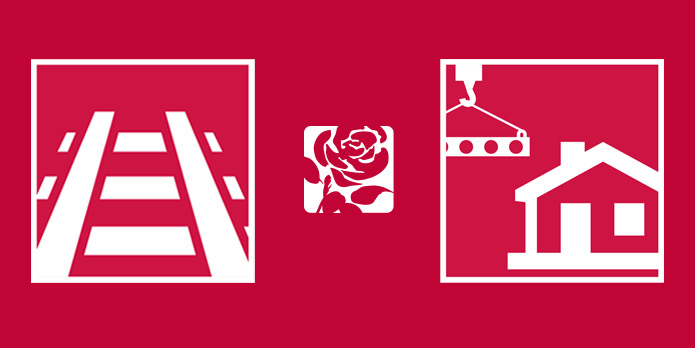
What does Labour’s new shadow cabinet mean for transport and infrastructure policy?
The new Labour leader Jeremy Corbyn finds himself as the pivot in a complicated and delicate balancing political act. His yearning for a new kind of bottom-up politics means a more uncertain Labour policy agenda and his rally against tradition and conformity means we cannot assume a golden thread will connect his policies to previous regimes.
And, while policy-making is usually largely a product of the Parliamentary Labour Party (PLP) – Mr Corbyn’s colleagues who sit in the House of Commons and the House of Lords – his pledge to democratise the policy-making process shifts power towards his grassroots support base and leaves concrete policies up in the air until new, more formal procedures, can be developed for how the views of the base will precipitate policies at the top.
However, despite such an emphasis on renewal, it is interesting that the new leader’s shadow cabinet draws heavily on people with frontbench experience – an acknowledgement of Mr Corbyn’s own lack of experience in the higher echelons of Labour and of the need for some element of balance between the old and the new. Mr Corbyn will also be mindful that, with so many in the PLP sceptical of his leadership, he needs to be very careful in the battles he picks with his backbenchers. To this extent, the voice of the PLP will still be very prominent in counter-balancing the instinctive direction of its new leader.
John McDonnell – treasury
John McDonnell’s appointment as shadow chancellor has been highly controversial. From the safety of the backbenches he consistently voiced his opposition to a third runway at Heathrow. Despite this, the majority of Labour are still overwhelmingly ‘for’ this new piece of national strategic infrastructure and so we can expect Mr Corbyn not to whip a vote against it. Mr McDonnell has also taken umbrage with the Department for Transport’s HS2 consultation route and is as passionate an advocate for the renationalisation of the railways as anyone in Labour.
Lilian Greenwood – transport
One of the best received announcements has been the appointment of Nottingham South MP, Lilian Greenwood, as shadow transport secretary. Ms Greenwood has been heavily involved in transport since the start of her parliamentary career. Almost straight after winning her seat in 2010 she was made a member of the Transport Select Committee, a position she had to vacate after being made an assistant whip. But before too long she was back in the fold, with the shadow rail minister brief. After nearly four years in this prominent role she is arguably one of the most qualified figures in the new Corbyn Cabinet. Her historic support for HS2 may rub against her colleague Mr McDonnell’s – it will be interesting to see which prevails.
Before the general election, Ms Greenwood stressed that devolution of local transport was an integral part of Labour Party policy and, while she has not expressed the desire to renationalise the railways she did support previous policy to allow public-owned companies to bid for franchises as they expire, a mechanism that could lead to a gradual process of renationalisation.
John Healey – housing and planning
The MP for the South Yorkshire constituency Wentworth and Dearne, John Healey, has returned to a portfolio he held in Gordon Brown’s cabinet. The first question Mr Corbyn asked at his first Prime Minister’s Questions concerned the lack of social housing and investment in new building work. His support base includes many young people whose prospects of home ownership dwindle with increasing house prices, so investment in new affordable housing will no doubt be a prominent theme over the next parliament.
John Trickett – communities and local government
The new shadow secretary for communities and local government is committed to more investment in the north of England but has also criticised George Osborne’s Northern Powerhouse strategy as a method of shifting the burden of public spending cuts to devolved city regions. In September he launched Northern Futures, a campaign dedicated to regenerating, rebalancing and renewing the north of England and he has been sharp to criticise the government when flagship Powerhouse projects – such as TransPennine rail electrification – have been delayed.
Striking the balance
Shadow cabinets often seek to be a unified force but Jeremy Corbyn, in seeking representation from all corners of the Party, has appointed a team with a potential for significant internal division. His relationship with his cabinet and backbench MPs must be carefully tended to. This means being more moderate than his natural instincts would require and, while, we may expect radical policies on investment in new infrastructure – especially relating to housing – his personal sensitivities may be equivocated in favour of the party’s majority view.
Freshwater’s public affairs team offers a political and media monitoring service which collates the latest transport and infrastructure updates and sends them to your inbox every weekday. Register now.
